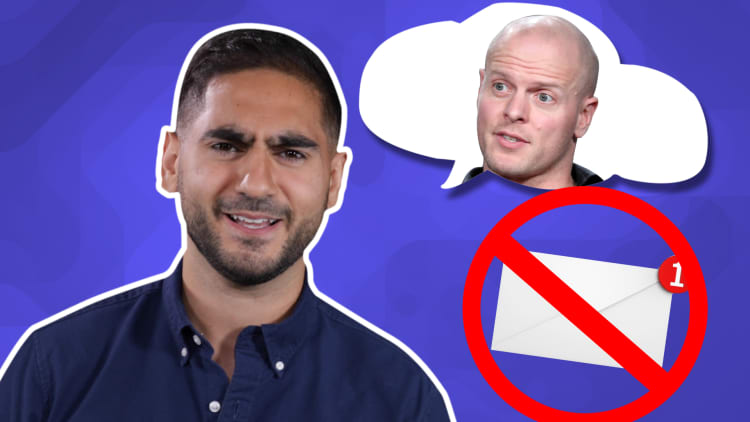Crafting an unsolicited email to a stranger takes skill, especially when you're asking for a favor.
But if done correctly, sending a cold email can yield great results. Just ask 25-year-old Alex Banayan, who has scored coveted interviews with the likes of Microsoft co-founder Bill Gates, Google co-founder Larry Page and “The 4-Hour-Work-Week” author Tim Ferriss.
In his quest to uncover how the world’s most successful people launched their careers, which he recounts in his book “The Third Door,” Banayan made a number of cold email blunders.
His first mistake? Sending Ferriss’ assistant a total of 31 messages, some of which were nine paragraphs long.
Though Banayan eventually secured a phone interview with the bestselling author and entrepreneur, it was largely because Ferris wanted to know “what the hell” was wrong with him. Suffice to say, the discussion didn’t go as Banayan had planned.
“In my interview with Tim Ferris, he was essentially beating me over the head, teaching me all the [email] mistakes I made,” Banayan tells CNBC Make It.
As uncomfortable as this experience was for him, Banayan says Ferriss gave him some much-needed advice, especially the top five cold email mistakes to avoid:
1. Asking vague questions
Specificity is key when emailing someone you don’t know, so never ask to pick their brain or if they can meet for coffee, says Banayan.
Instead, give a brief but direct explainer of what it is you’re looking to gain. This can be as simple as saying, “I’d like to discuss a relationship of some type that could take this-and-this form. Would you be willing to to discuss it?”
2. Sending lengthy emails
The person you're reaching out to should be able to read your email in less than 60 seconds. Any longer and it’ll go in the trash folder.
“They don’t know the person sending it [and] they don’t have time to read it,” Banayan explains. “Boom. It’s archived.”
3. Telling the person how to feel
“Never write things with presumptions,” Banayan warns. Presumptuous emails generally go something like, “This is perfect for you” or “You’ll love this.”
“It assumes that you know who they are,” says the author, “and the truth is, you’ve never met them before.” In other words, you can’t determine what the person will like or how the person will feel if the two of you aren't closely familiar.
4. Saying "thanks in advance"
It’s common to sign off on an email by writing, “Thanks in advance.” But according to Ferriss, this comes off as “annoying and entitled.”
"The 4-Hour-Work-Week" author recommends a more modest approach. Tell the recipient that you know he or she is busy and that you totally understand if the person cannot respond.
5. Emailing too frequently
There’s a fine line between persistence and pestering. Banayan learned that the hard way.
“If you sense someone getting annoyed, you need to back off,” he recalls Ferriss telling him, particularly when reaching out to a well-known person.
“Recognize that if you’re emailing someone like that, you should have your hat in your hand,” says Ferriss. “You need to be polite and deferential.”
— Video produced by Richard Washington.
Like this story? Subscribe to CNBC Make It on YouTube!
Don't miss: The surprising lesson Alex Banayan learned when he asked Warren Buffett an embarrassing question




